Zodiac Signs In Thearpy 😅 #zodiacsigns #astrology
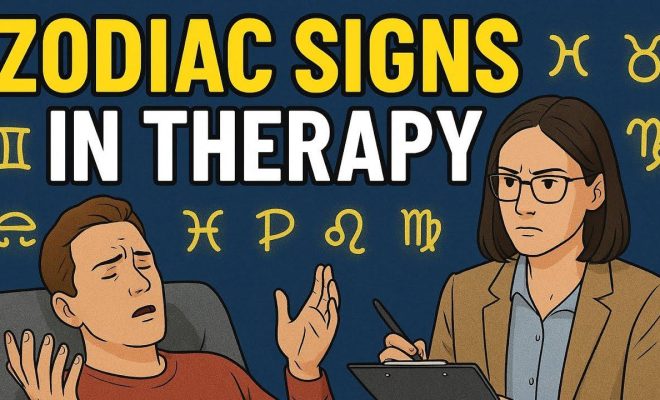
Astrology doesn’t clock out when you step into a therapist’s office-at least not in this video.
In “Zodiac Signs In Thearpy 😅,” a lineup of star signs takes a turn on the therapy couch, each bringing their trademark attitude, defense mechanisms, and drama. From the sign that swears “people be lying” (and totally doesn’t have trust issues), to the one who’s “misunderstood” and proudly detached, to the hopeless romantic healing from heartbreak, every character turns a therapy session into a cosmic confessional.
There’s the confident sign who’s “just a bad [__]” and can’t help if people stare, the know‑it‑all who low‑key thinks they could do the therapist’s job, and the one tired of being reduced to “greedy, stubborn, and always hungry” while insisting there’s so much more beneath the surface.
In this post, we’ll break down the personalities, stereotypes, and subtle truths behind these therapy-room moments-looking at how zodiac traits might really show up when it’s time to unpack our issues, set boundaries, and figure out this thing called life.
Trust issues and emotional boundaries Exploring how different zodiac signs guard their hearts in therapy
In the therapist’s chair, some signs arrive with a full legal team guarding their hearts. The air signs and earth signs often turn trust into an intellectual debate or a fact-checking mission: they’ll cross-examine every question, half-convinced they could do the therapist’s job themselves. They don’t call it “trust issues”-they call it “doing research” or “having receipts.” Others protect themselves with humor and detachment, swearing they don’t care what anyone thinks while quietly scanning for lies and red flags. For them, stepping back or going silent isn’t avoidance; it’s self-defense. That cool exterior, the “I really don’t give a [__]” vibe, is just a boundary wrapped in sarcasm.
Then there are the signs who guard their hearts by doubling down on feelings instead of hiding them. The hopeless romantics walk into therapy with breakup battle scars and a belief that love is still worth the risk, even when their ex “drew them through the mud.” Some are labeled “cold” or “detached” simply because they’re selective about who gets access to their emotions-you’re just not on the list, and that’s their way of staying safe. Confidence itself becomes a boundary for others: they’re called “full of themselves,” but that high self-worth is how they protect their energy from jealousy, judgment, and people projecting their own insecurities. In the session, each sign is really asking the same thing in their own language: “Who can I trust with my story-and am I allowed to protect my peace while I heal?”
- Guarded minds – turn feelings into debates, facts, and “research.”
- Guarded hearts – act like they don’t care, but notice every lie.
- Guarded hope – still believe in love, even with a cracked heart.
- Guarded confidence – use self-love as a shield from jealous eyes.
| Vibe in Therapy | Hidden Boundary |
|---|---|
| “I don’t have trust issues, people just be lying.” | Needs proof before opening up. |
| “I do have feelings, just not for you, boo boo.” | Emotional access is invitation-only. |
| “I’m a hopeless romantic, even after all that.” | Still believes love can heal old wounds. |
| “I’m a bad [__], that’s not my fault.” | Protects self-worth from jealousy and criticism. |
| “Doc, I disagree-I did my research.” | Trust must be earned, not assumed. |
Misunderstood or detached Revealing the hidden sensitivity behind each signs cold reputation
In the therapy room, some signs wear their chill like armor, insisting that trust is the problem, not them-after all, “people be lying”. What looks like a cold shoulder is often a reflex born from too many broken promises: when they spot even a hint of dishonesty, they silently pull back and never look over their shoulder. Others swear they’re simply “misunderstood,” laughing off accusations of having “no feelings” while privately curating a very short list of people they truly care about. Their detachment isn’t empty; it’s selective. If you’re not on the list, you’ll meet the version of them that seems icy, sarcastic, and unbothered. Underneath, there’s a nervous system that’s tired of being played, so it pretends not to care before anyone can see it bleed.
Then there are the signs whose reputations are a cocktail of confidence, appetite, and alleged stubbornness. The “it’s all about me” types might look self-obsessed, but their glamorized self-talk hides an old fear of being overlooked, so they double down on the mirror and call it self-love. The “greedy, hungry, stubborn” ones aren’t just in love with snacks-they crave stability, proof, and receipts before they trust anyone’s version of the story, even the therapist’s. In session, they challenge, debate, and fact-check not because they lack feelings, but because they’ve learned that whoever controls the narrative controls the hurt. Their cool demeanor is really a slow, cautious warm-up: test after test, boundary after boundary, until safety feels real enough to finally melt.
- Selective caring – not heartless, just protective of who gets access.
- Confident personas – bold exteriors masking fears of invisibility.
- “Stubborn” energy – a need for proof before surrendering trust.
- Detached vibes – emotional brakes, not a broken engine.
| Cold Trait | Hidden Sensitivity |
|---|---|
| “I don’t care.” | Afraid caring will be used against them. |
| “It’s not about me, it’s them.” | Struggling to admit their own pain out loud. |
| “I’m just confident.” | Needs validation they never got early on. |
| “I’m not stubborn, I’m right.” | Fears that compromising means losing themselves. |
Self love confidence and ego Building healthy self esteem without dismissing the therapists guidance

That loud, glowing confidence some signs bring into therapy can look like pure ego on the surface-“I’m a bad one, that’s not my fault, they just jealous”-but underneath is a fragile need to know they’re still lovable when the room isn’t clapping. Real self love in session isn’t about proving everyone else wrong; it’s about letting the therapist gently poke holes in the myths you built to survive. Instead of turning every question into a debate or a “fact check,” it helps to notice the part of you that feels triggered when the spotlight shifts from other people’s lies to your own patterns. That’s the version of you the therapist is actually trying to help, even when it feels like they’re coming for your crown.
- Healthy self esteem lets you say “I know I’m worth it” and still ask, “Where can I grow?”
- Inflated ego needs to be right so badly that it argues with every suggestion.
- Self love accepts “I’m misunderstood” and still wonders, “How am I showing up?”
- Therapist guidance isn’t shade; it’s a mirror you don’t always want, but usually need.
| Therapy Moment | Ego Response | Self-Love Upgrade |
|---|---|---|
| “People say I’m full of myself.” | “They just jealous.” | “Why does that comment sting me?” |
| “I disagree with you, Doc.” | “I could do your job.” | “Can we explore both views?” |
| “They call me stubborn.” | “I’m just always right.” | “What if we test my ‘receipts’ together?” |
Building a sturdier sense of worth means you don’t have to flex every time you feel doubted. The misunderstood soul, the hopeless romantic, the “cold” one who only cares about selected people-all of them can sit on the couch without being dragged. When you stop treating your therapist like one more hater in the streets and start using their questions as tools instead of attacks, your confidence gets quieter but deeper. It stops needing constant proof that you’re special and starts trusting that, even when you’re wrong, you’re still worthy of love, healing, and a life that feels better than the stories you’ve been rehearsing.
Stubbornness snacks and self awareness Turning zodiac stereotypes into real growth goals in sessions
In session, we can actually use those “you’re stubborn, you just want your snacks” digs as a mirror instead of a drag. When a client jokes, “I’m not stubborn, I just know I’m right”, that becomes a doorway to explore how often they double down instead of listening, or how snacks and creature comforts become armor when they feel judged or misunderstood. A therapist might gently turn those stereotypes into self‑check questions: Are you eating to soothe, or to avoid? Are you arguing to be heard, or to win? Suddenly the meme version of the sign becomes a starting point for real emotional literacy, not just a punchline.
Once those patterns are out in the open, they can be turned into small, doable growth goals that still honor the sign’s vibe. A “snacks and stubborn” client doesn’t need to become a different person; they just need tools that work with their nature. In practice, that might look like:
- Snack rituals that are paired with journaling or reflection instead of mindless scrolling.
- Stubborn energy redirected into consistent boundary setting rather than endless defending.
- Comfort‑first routines that make it safe to try one new emotional risk at a time.
| Old Stereotype | New Growth Goal |
|---|---|
| “I just know I’m right.” | Practice hearing one full opinion before responding. |
| “Don’t touch my snacks.” | Use snack breaks as check‑ins: “What am I really feeling?” |
| “I’m not stubborn, you’re wrong.” | Try one small compromise per day, on purpose. |
Final Thoughts
And there we have it-therapy, but make it zodiac.
From the “people be lying” trust issues, to the “I’m not cold, I just don’t like you” emotional boundaries, the hopeless romantic with a grudge, the unapologetic “bad [__]” confidence, the know‑it‑all debater, and the snack‑defending “I’m not stubborn, I’m just right” energy-each sign in this skit holds up a slightly exaggerated mirror to the ways we cope, protect ourselves, and try to make sense of life.
Whether you’re into astrology or just here for the comedy, these caricatures highlight something real: we all walk into therapy carrying our stories, our defenses, and our favorite excuses. The fun part is noticing which ones sound a little too familiar.
If any of these zodiac “clients” reminded you of yourself (or someone you know), that’s your gentle nudge to reflect: where do you truly want to grow, and where are you just doubling down on your sign’s stereotype?
Thanks for reading. Now it’s your turn-how does your sign act in therapy?
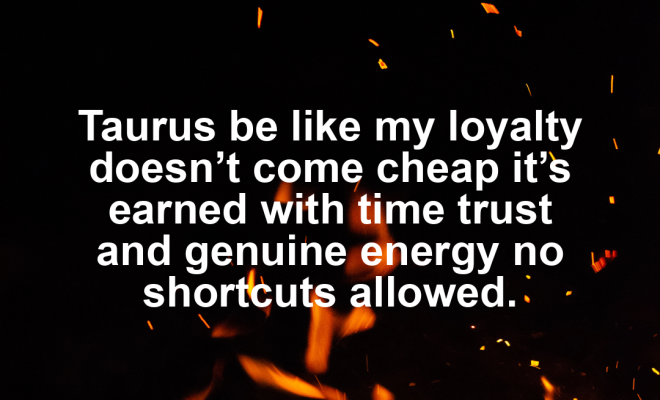
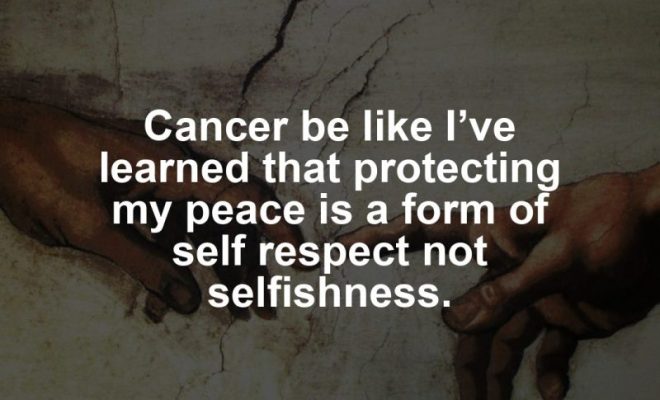
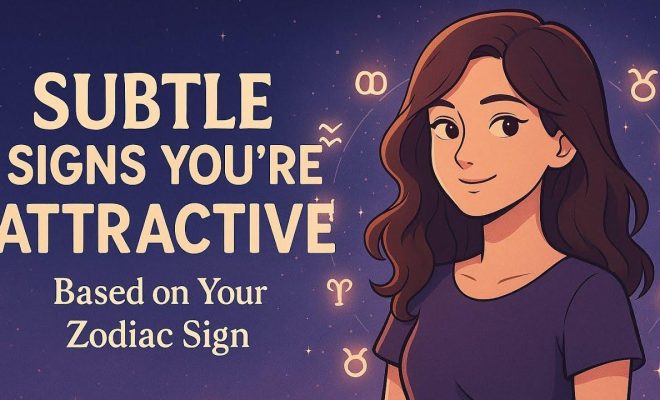

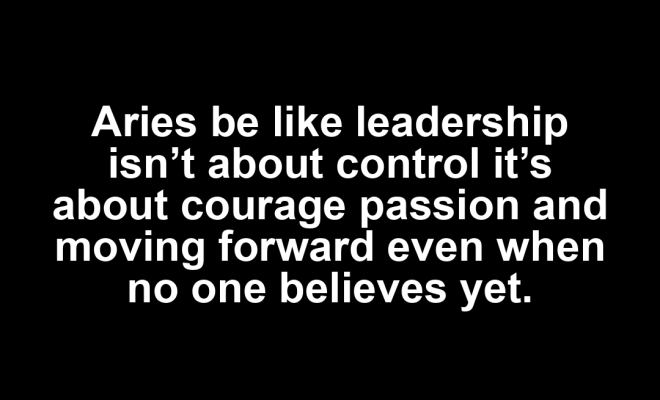
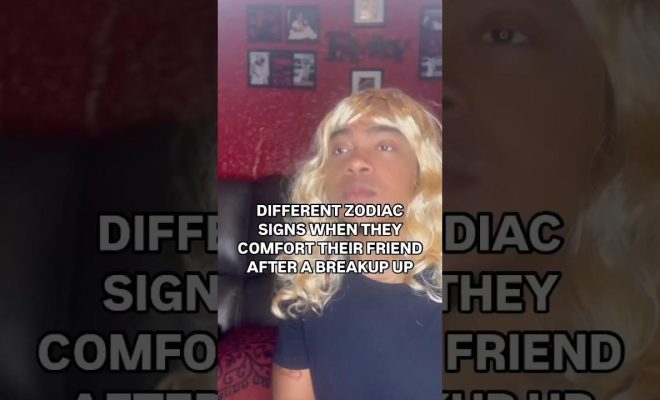






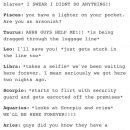

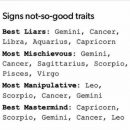
How Will Your Zodiac Sign Be Affected!?! (April 19th – May 20th ) #tarusseason
How Will Your Zodiac Sign Be Affected!?! (April 19th – May 20th ) #tarusseason
How Will Your Zodiac Sign Be Affected!?! ( April 23rd – May 7th ) #fullmoon